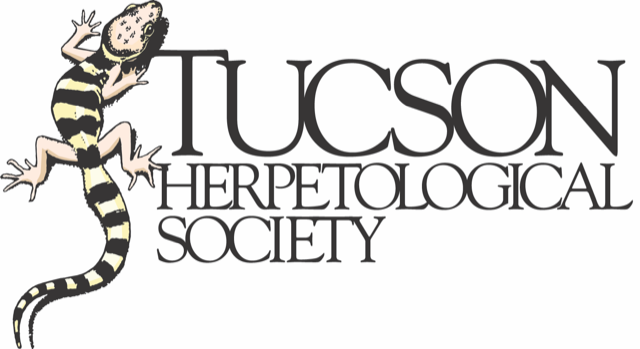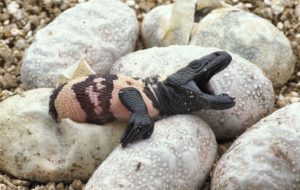Proposed 2021 Board Slate and Their Biographies
This year’s slate runs unopposed with a vacancy for Program Chair.
Voting to affirm the 2021 slate by current members of Tucson Herpetological Society will take place during the live broadcast via Zoom, or via Doodle poll linked at the Tucson Herpetological Society homepage and Facebook page.
We are thankful for Peter Underwood for leading the search for candidates and composing the slate.
Continuing Officers
President: Robert Villa
Vice President: Patrick Brown
Secretary: Karina Hilliard
Treasurer: Margaret Fusari
Directors at large
Rhishja Cota (Former director and now up for a new full term election)
John Ginter (Appointed in 2020 and now up for a full term election)
Continuing Directors at large
William Cooper
Ross Maynard
Peter Underwood
Appointed Directors
Sonoran Herpetologist Editor: Howard Clark
Program Chair: vacant
[vc_row][vc_column][gap size=”50px” id=”” class=”” style=””][/vc_column][/vc_row][vc_row][vc_column width=”1/4″][vc_single_image image=”5126″ img_size=”medium” alignment=”center”][/vc_column][vc_column width=”3/4″][vc_column_text]
Robert Villa – President
[/vc_column_text][/vc_column][/vc_row][vc_row][vc_column][gap size=”50px” id=”” class=”” style=””][/vc_column][/vc_row][vc_row][vc_column width=”2/3″][vc_column_text]Patrick Brown – Vice President
A proud fifth-generation Texan, Patrick Brown has made Tucson his longtime home. Patrick earned a B.S. in Psychology from the University of Arizona, and now works as a firefighter, EMT, and technical rescue and hazardous materials technician for the Northwest Fire District in Tucson.
Influenced by his father’s enthusiasm for herpetology, Patrick has had lifelong interest in reptiles and amphibians. Aside from personal herping adventures in the Sonoran and Chihuahuan deserts, his herpetological resume includes field studies for various researchers at the University of Arizona, the USGS, and in the private sector.
To further the mission of the THS, Patrick has assumed responsibilty for the THS website and has worked to update the Society’s online membership portal. Once public gatherings become safer, Patrick would also like to become involved in the THS’ Speaker’s Bureau and explore opportunities for field trips in Arizona and Sonora.[/vc_column_text][/vc_column][vc_column width=”1/3″][vc_single_image image=”4790″ img_size=”medium” alignment=”center”][/vc_column][/vc_row][vc_row][vc_column][gap size=”50px” id=”” class=”” style=””][/vc_column]
[/vc_row][vc_row][vc_column width=”1/4″][vc_single_image image=”4796″ img_size=”medium” alignment=”center”][/vc_column][vc_column width=”3/4″][vc_column_text]Margaret H Fusari (Maggie) – Treasurer
I have served the THS as treasurer for five years (2015-2019) and will continue for at least another year (2020). I retired from 27 years at UC Santa Cruz where I served as Director of the Natural Reserves and Lecturer for Environmental Studies and Biology. I am a herpetologist, environmental physiologist, biologist, and educator. I came to Tucson in January 2010 from two years in Peace Corps, México. I now serve as a Docent for the Arizona Sonora Desert Museum and as a board member of the Desert Tortoise Council.
As Treasurer I provide monthly financial reports and present a tentative budget each year to guide THS spending and fund raising. I am known to provide frank input at board meetings. I have also spent a lot of time working on THS infrastructure hoping that we can increase our income and improve our operations.
According to our Constitution and By Laws I am also responsible for our memberships and the operation of the online database. For this, and for support for improving our income and operations, I must call on volunteers for help. If you are interested, please contact me.
[/vc_column_text][/vc_column][/vc_row][vc_row][vc_column][gap size=”50px” id=”” class=”” style=””][/vc_column][/vc_row][vc_row][vc_column width=”2/3″][vc_column_text]Karina Hilliard – Secretary 2020
Karina is going into her 5th year on the board for THS. She is also a member of the Huachuca Area Herpetological Association–doing multiple outreach events with live reptiles throughout the year. Karina is often working with AZ Game and Fish, The Northern Jaguar Project, The Hummingbird Monitoring Network, and occasionally with US Fish and Wildlife in their various projects in Arizona and Mexico. She has spent time working with the Bangladesh Python Project and searching for critters in a few other countries. Her main goal in life is conservation work and sharing the wonders of the planet with others. While working towards a bachelor’s degree in biology, Karina is an active Wildland Firefighter and EMT as well as an Animal Control Officer.
[/vc_column_text][/vc_column][vc_column width=”1/3″][vc_single_image image=”4792″ img_size=”medium” alignment=”center”][/vc_column][/vc_row][vc_row][vc_column][gap size=”50px” id=”” class=”” style=””][/vc_column][/vc_row][vc_row][vc_column width=”1/4″][vc_single_image image=”4793″ img_size=”full” alignment=”center”][/vc_column][vc_column width=”3/4″][vc_column_text]
Howard Clark – Editor, Sonoran Herpetologist
Howard has more than 20 years of professional wildlife and research experience. He is certified by the Ecological Society of America as a Senior Ecologist and by The Wildlife Society (TWS) as a Certified Wildlife Biologist®. His work as an ecological consultant has focused on the fauna and ecosystems of California and has included extensive baseline inventories, surveys for rare animals, and habitat assessment. He has conducted dozens of inventories, surveys, and assessments for blunt-nosed leopard lizard, burrowing owl, San Joaquin kit fox, giant kangaroo rat, and Mohave ground squirrel among many others. He developed his consulting skills while working for H. T. Harvey & Associates for 10 years and Garcia and Associates for three years. He currently works for Colibri Ecological Consulting, LLC, as a Senior Technical Specialist. Prior to working as a consultant, Howard spent seven years as a wildlife biologist with the Endangered Species Recovery Program. He completed his Master’s degree at CSU Fresno in 2001. His thesis addressed the interactions between the endangered San Joaquin kit fox and the non-native red fox in Kern County, CA. He is an instructor for TWS kit fox and small mammal workshops, and the Western Section of TWS awarded him the Raymond F. Dasmann Award for Professional of the Year in 2015. He is also the Layout Editor for the Western Section’s journal Western Wildlife. During leisure time, Howard enjoys hiking, geocaching, and visiting places of historical interest with his daughter.
[/vc_column_text][/vc_column][/vc_row][vc_row][vc_column][gap size=”50px” id=”” class=”” style=””][/vc_column][/vc_row][vc_row][vc_column width=”2/3″][vc_column_text]Rhishja Cota – Director
Rhishja is a native Californian and has lived in Tucson since 2016. She is the Founder and Creative Director of Annamiticus. She has worked as a Consultant with USAID Wildlife Asia since 2017 and has been an advocate for combating wildlife trafficking since 2009. Rhishja is the author of USAID Wildlife Asia’s Pangolin Species Identification Guide: A Rapid Assessment Tool for Field and Desk. She co-faciliated and was a presenter at the USAID Wildlife Asia Pangolin Care Workshop. At the 4th Regional Dialogue on Combating Trafficking of Wild Fauna and Flora, she facilitated species pangolin roundtables.
Rhishja produced and hosted the Behind the Schemes podcast from 2012 – 2017 and is the author of Murder, Myths & Medicine. Rhishja has written for National Geographic’s News Blog – News Watch and the environmental news blog Planetsave. Rhishja has journeyed to the streets of Hanoi to research the illegal wildlife trade, to the rainforests of Sumatra and Java to document the world’s rarest rhinos, and has trekked with rangers in the heart of Cambodia. At CITES meetings, she joins colleagues from around the world to lobby in favor of protecting endangered species from economic exploitation.
She is a Stanford Certified Project Manager (Stanford Center for Professional Development, Stanford University) and received her BA degree in Government from California State University, Sacramento.
[/vc_column_text][/vc_column][vc_column width=”1/3″][vc_single_image image=”5129″ img_size=”full” alignment=”center”][/vc_column][/vc_row][vc_row][vc_column][gap size=”50px” id=”” class=”” style=””][/vc_column][/vc_row][vc_row][vc_column width=”1/4″][vc_single_image source=”external_link” alignment=”center” custom_src=”http://www.tucsonherpsociety.info/wp-content/uploads/2020/08/Fig11_Bill_Cooper.jpeg”][/vc_column][vc_column width=”3/4″][vc_column_text]Bill Cooper – Director
Bill Cooper was a professor of animal behavior, ecology and evolution. He retired from Purdue University at Fort Wayne, Indiana in 2011 and moved to Tucson in 2014. he served as a THS board member for two years. His main interests on board of directors were and remain THS’s research and conservations missions. His research has focused on antipredatory behavior, foraging behavior and social behavior of lizards, but he has also published studies about snakes, turtles and frogs. He has served on boards or as an editor of journals of the Herpetologists’ League, the American Society of Ichthyologists and Herpetologists, and the European Herpetological society, and served on committees for the Society of study of Amphibians and Reptiles. He has published more than 340 peer reviewed papers, book chapters, edited a written chapters book about escape behavior published by Cambridge University Press, and written numerous reports and laboratory texts. Bill is life-long herper for fun, discovery and wonder.
[/vc_column_text][/vc_column][/vc_row][vc_row][vc_column][gap size=”50px” id=”” class=”” style=””][/vc_column][/vc_row][vc_row][vc_column width=”2/3″][vc_column_text]Peter Underwood – Director
Peter is a Hospital Clinical Pharmacist by profession with a somewhat limited exposure to herpetology, but ample exposure to medicines derived from herpetofauna. Interestingly, he has not run into the use of snake antivenom, since snake bites were few and far between in his home state of Wisconsin. Peter and his wife Mary are new to the southwest, but they hike regularly and are also very active technical rock climbers, so they spend a great deal of time in remote areas of the desert and in the local mountains. Running into the variety of herpetofauna on their hikes and rock climbing outings has inspired a strong interest in identifying and learning about local species.
Peter’s other main hobby is beekeeping. He is a long-time hobbyist beekeeper and beekeeping educator. He is currently the Program Chair for the Southern Arizona Beekeepers Association. In 2016 Peter was awarded the Beekeeping Educator of the Year award by the Wisconsin Honey Producers Association. He regularly gives presentations to groups on beekeeping topics and mentors individuals, school groups, and organizations on beekeeping.
[/vc_column_text][/vc_column][vc_column width=”1/3″][vc_single_image source=”external_link” alignment=”center” custom_src=”http://www.tucsonherpsociety.info/wp-content/uploads/2020/08/Fig13_Peter_Underwood.jpeg”][/vc_column][/vc_row][vc_row][vc_column][gap size=”50px” id=”” class=”” style=””][/vc_column][/vc_row][vc_row][vc_column width=”1/4″][vc_single_image image=”5125″ img_size=”medium” alignment=”center”][/vc_column][vc_column width=”3/4″][vc_column_text]Ross Maynard – Director
Ross Maynard has been serving on the THS board since 2018 and enjoying life in the desert southwest since 2016. Originally from North Carolina, and after living in states such as WA, TX, CA, and UT, he is convinced that Tucson is the best place live in the U.S. and hopes to make it his permanent residence well into the future. The sun, reptiles, and plethora of herpetologists in Tucson is a combination difficult to match elsewhere. His international travels have included Bolivia, Ecuador, Mexico, The Netherlands, Switzerland, Saint Lucia, and Vietnam, where herpetological explorations were generally the primary focus. He holds a B.S. in Zoology from North Carolina State University and a M.Sc. in Biology from Stephen F. Austin State University (Nacogdoches, Texas), where his thesis centered on how amphibian and reptile distributions are influenced by proximity to a remote dirt road at a site in Amazonian Ecuador.
Since first traveling to Ecuador as an undergraduate in 2007 with the Tucson-based NGO, The Biodiversity Group, Ross has never looked back and now specializes in Neotropical herpetology. He serves as a researcher and photographer for The Biodiversity Group, and is Director of their Biodiversity Research Program in Ecuador. His current research centers on the conservation, ecology, and biodiversity of amphibians and reptiles at a site in the Andes of northwestern Ecuador called, the Río Manduriacu Reserve, where his team has described two new frogs and documented 25 species globally threatened with extinction. He also serves as a contributor for the IUCN SSC Amphibian Specialist Group and looks forward to getting involved with local projects here in Tucson.
[/vc_column_text][/vc_column][/vc_row][vc_row][vc_column][gap size=”50px” id=”” class=”” style=””][/vc_column][/vc_row][vc_row][vc_column width=”2/3″][vc_column_text]
John Ginter – Director
John is a naturalist with a deep love and appreciation for the Sonoran Desert. As a young man, John visited the desert southwest and promptly realized that this was the place for him. He has worked as a wildlife biologist in the region for over 30 years and is grateful for the many countless hours spent enjoying the Sonoran Desert as a wildlife biologist and naturalist.
[/vc_column_text][/vc_column][vc_column width=”1/3″][vc_single_image image=”5132″ img_size=”full” alignment=”center”][/vc_column][/vc_row]

